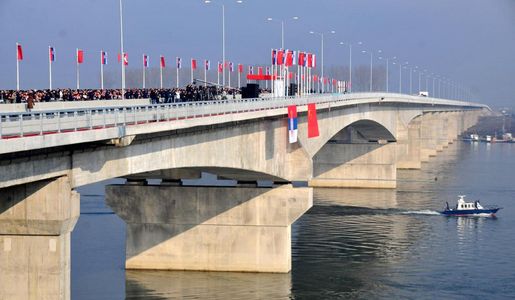Garcevic Interviewed on China and the Balkans
Ambassador Vesko Garcevic, Professor of the Practice of International Relations at the Frederick S. Pardee School of Global Studies at Boston University, was interviewed for an article on China’s growing influence in the Balkans.
Garcevic was interviewed for an August 24, 2018 article by the Swiss-German daily newspaper Neue Zürcher Zeitung entitled “A Silk Road for the Balkans.“
From the text of the article:
The Serbian projects on the list are now worth 6 billion dollars. This is what Serbian Prime Minister Ana Brnabic told journalists in November 2017. By comparison, this is six times as much as the European Bank for Reconstruction and Development (EBRD) invests in one year in the entire Western Balkans. However, there is a decisive difference here: Serbia will have to pay back the Chinese money.
“What is often confused with foreign direct investment is so-called soft loans,” says Vesko Garcevic, former Ambassador of Montenegro in Brussels and Vienna. He continues: “China is subtly building up its presence. It is silent, but currently the most effective of all the geopolitical actors in the Balkans”. Beijing has made this impact in a few years “through strategic partnerships” with the governments of the region, Garcevic says during a Skype interview. Since 2012, Beijing holds its own economic summit called “16 + 1”. Heads of state from 16 countries in Eastern and Southeastern Europe participate. At the beginning of July, the summit took place for the seventh time, this time in Sofia. “Bulgaria is said,” says Garcevic, “to have been more interested in holding the Chinese 16 + 1 summit than the EU summit in May.”
During his diplomatic career, Amb. Vesko Garcevic dealt with issues pertinent to European security and NATO for almost 14 years. In 2004, he was posted in Vienna to serve as Ambassador to Organization for Security and Cooperation in Europe. He had been a Montenegro’s Ambassador to NATO from 2010 until 2014 and served as a Montenegro’s National Coordinator for NATO from 2015 until he joined the faculty at the Pardee School.
